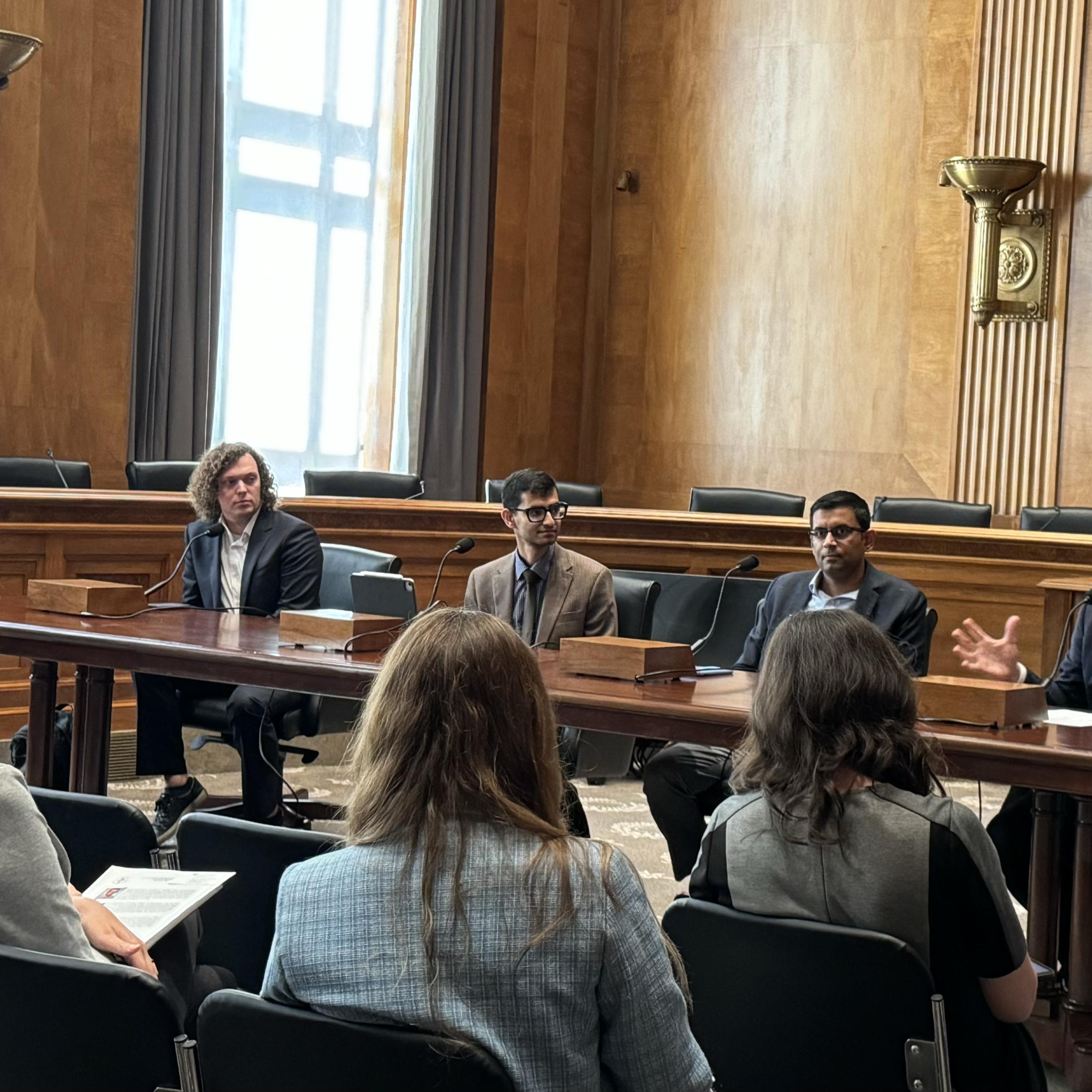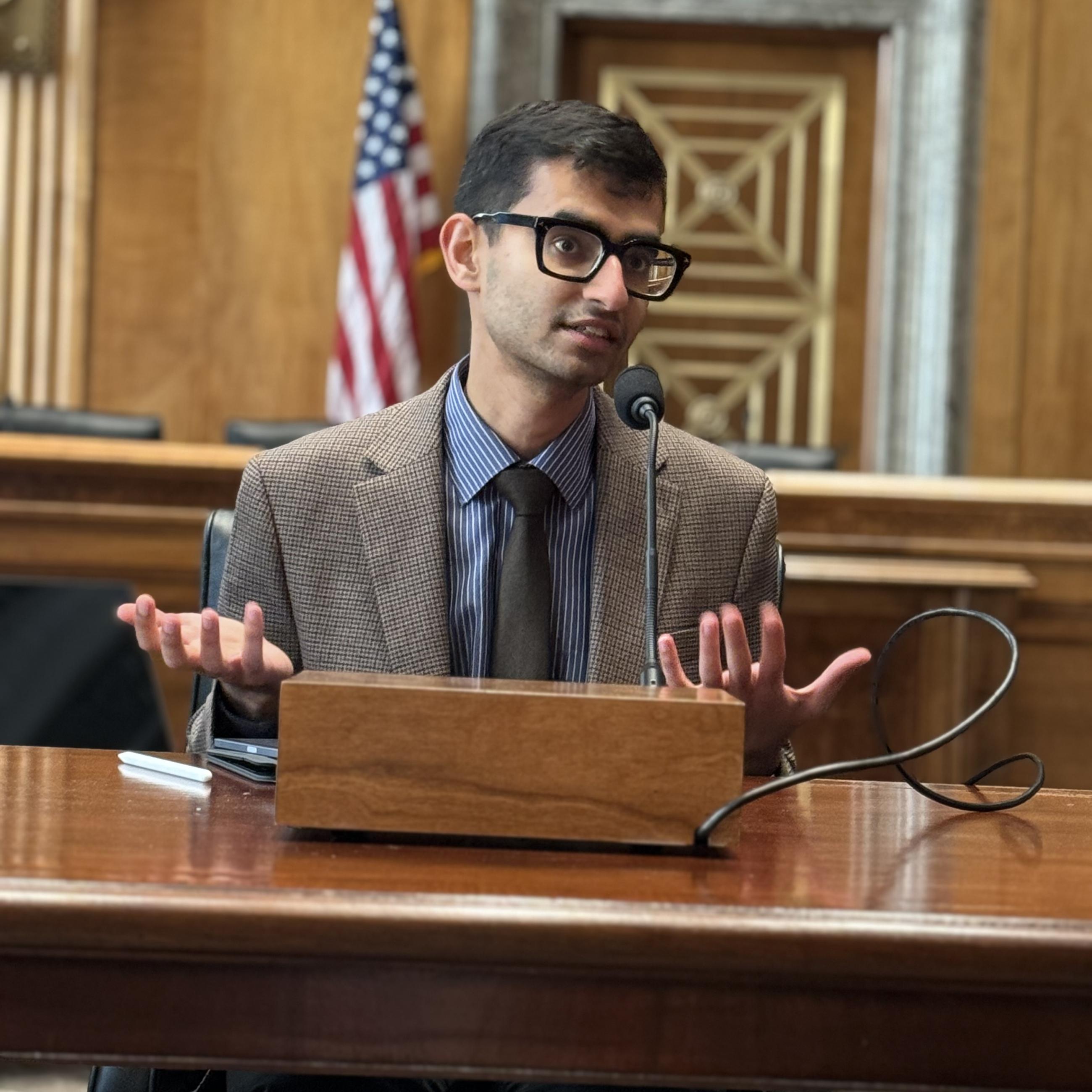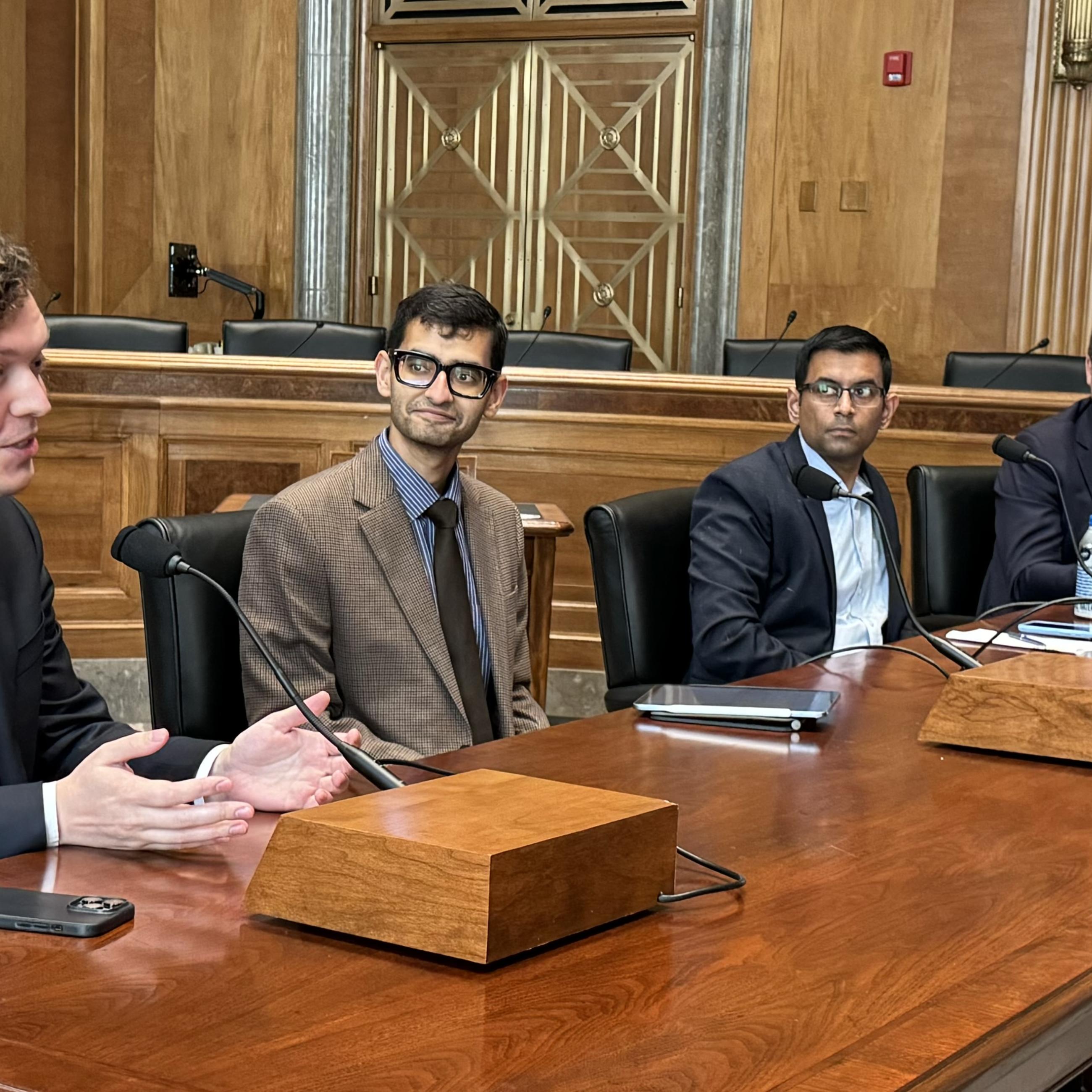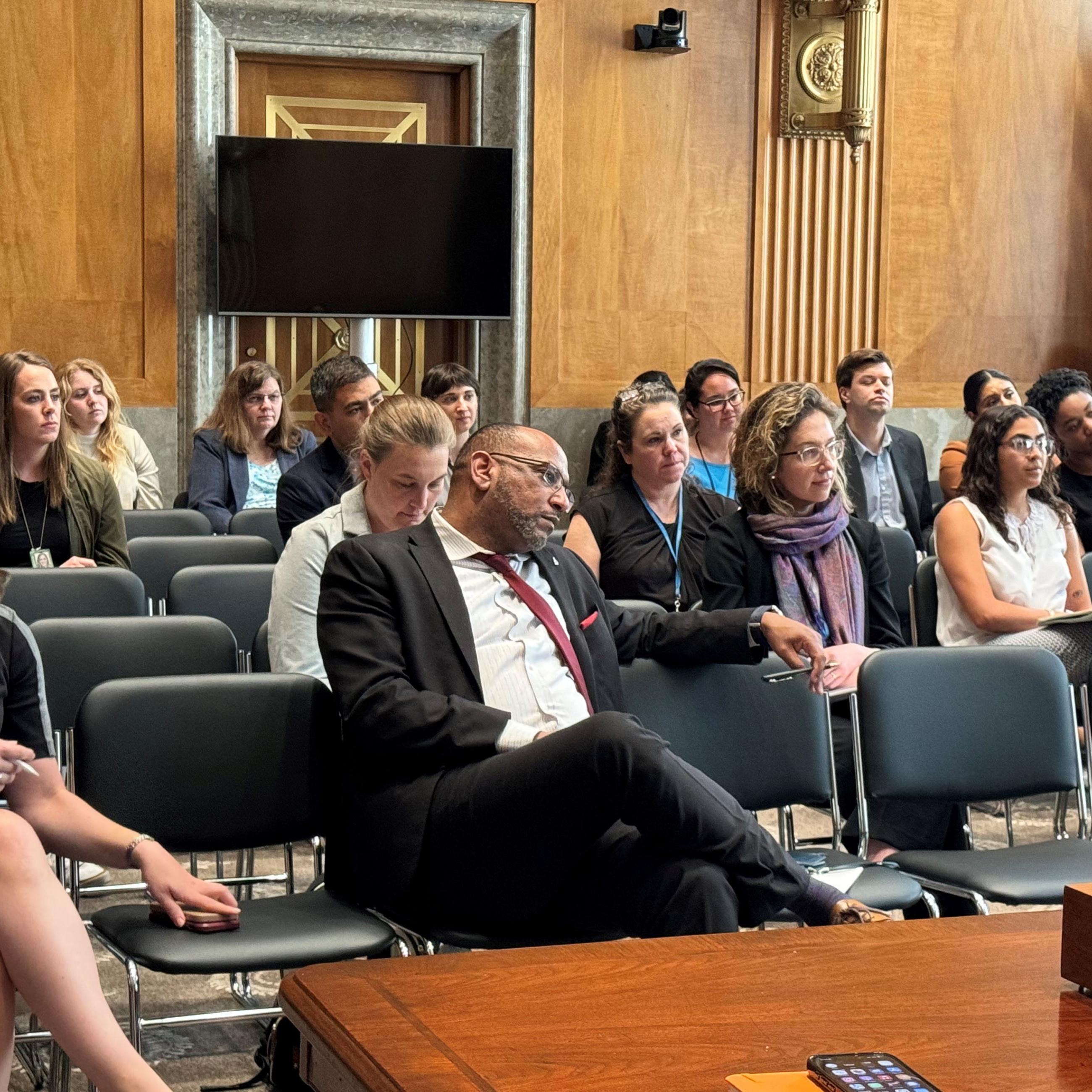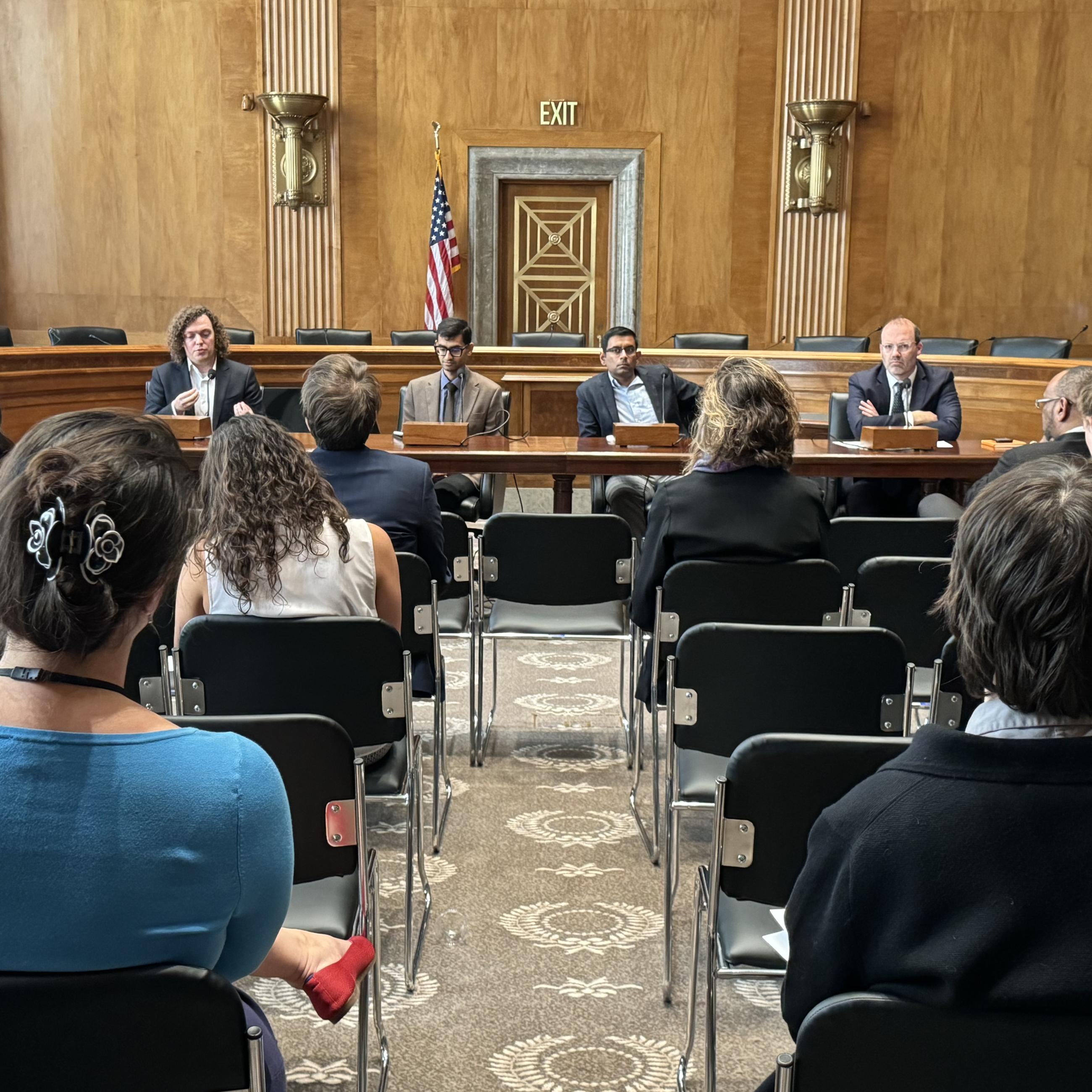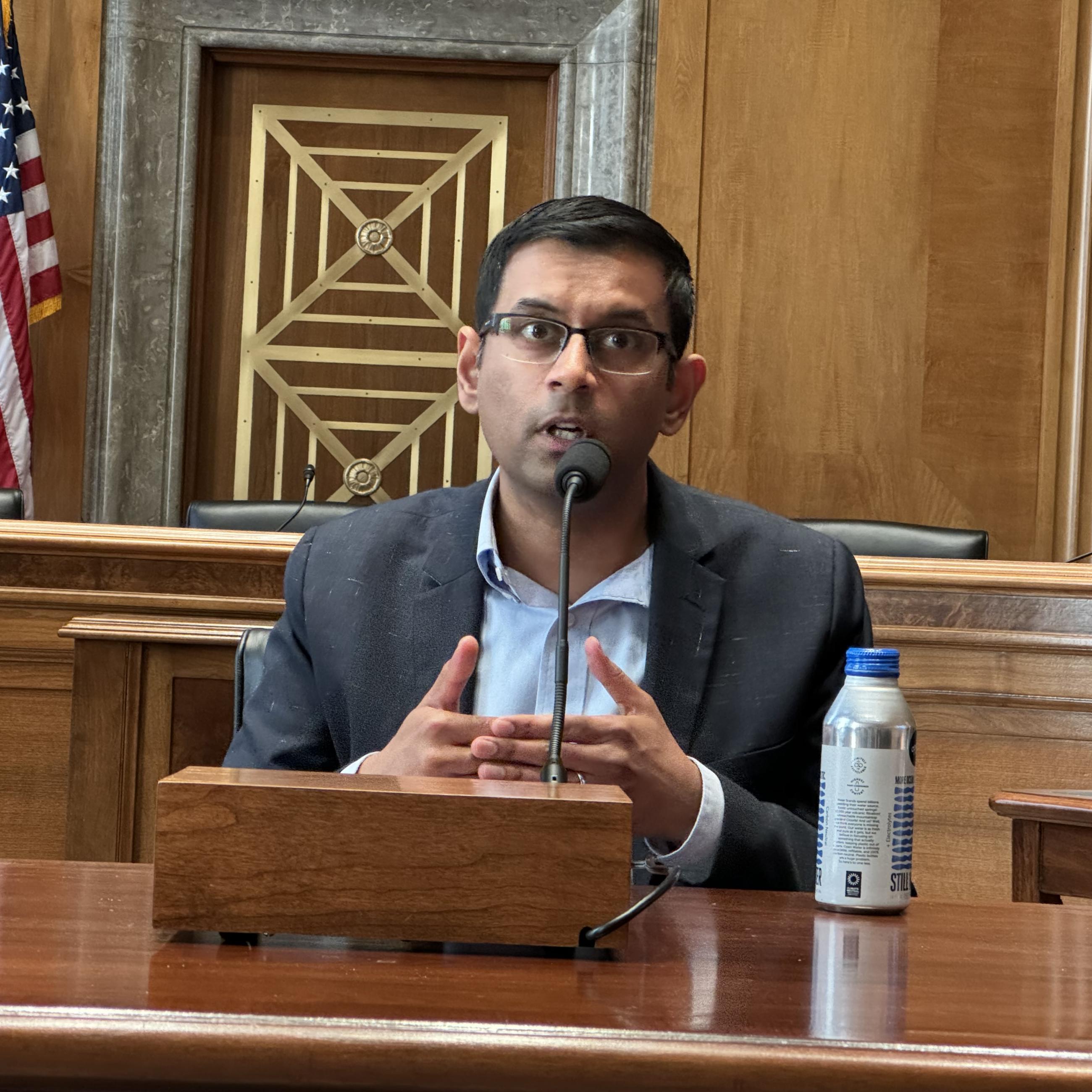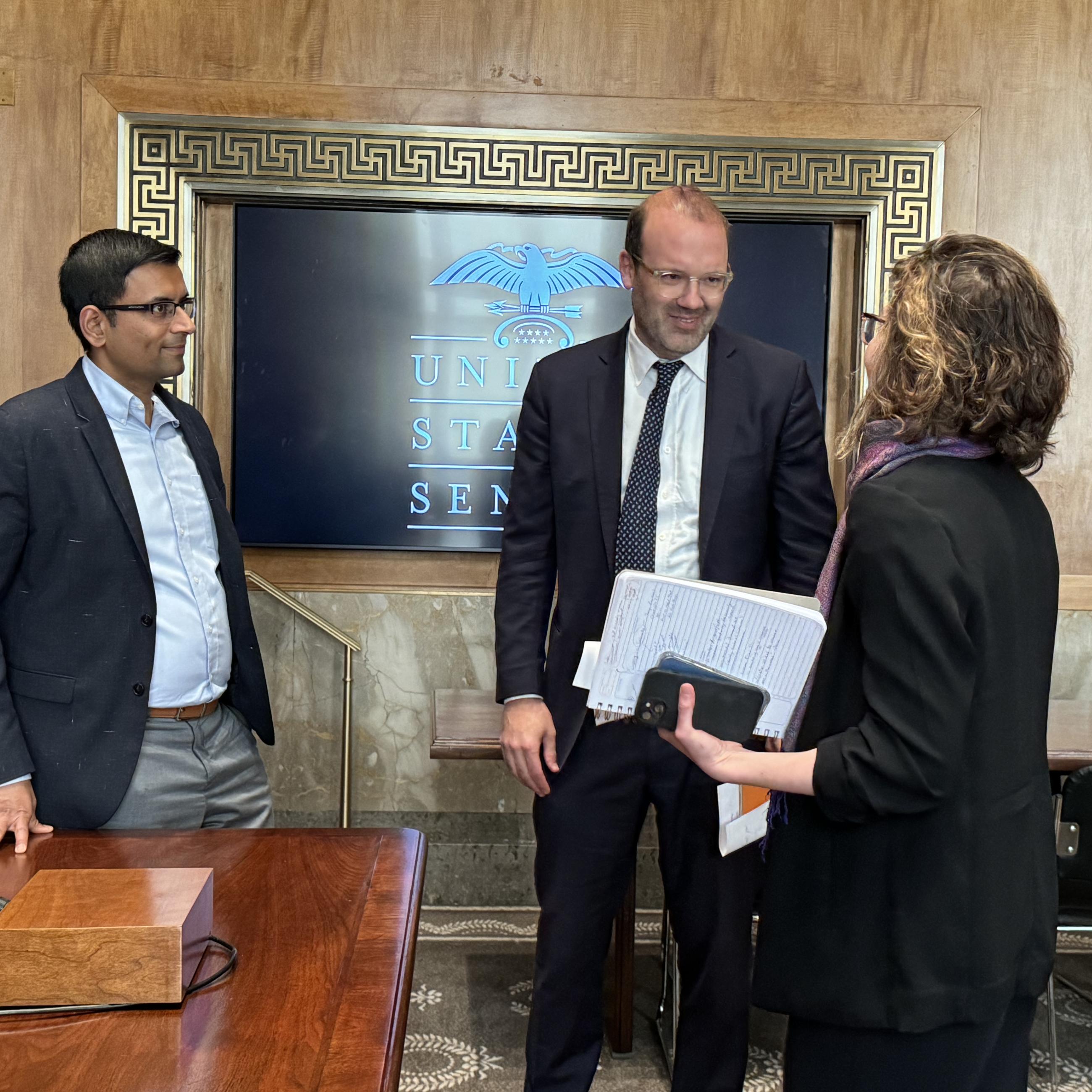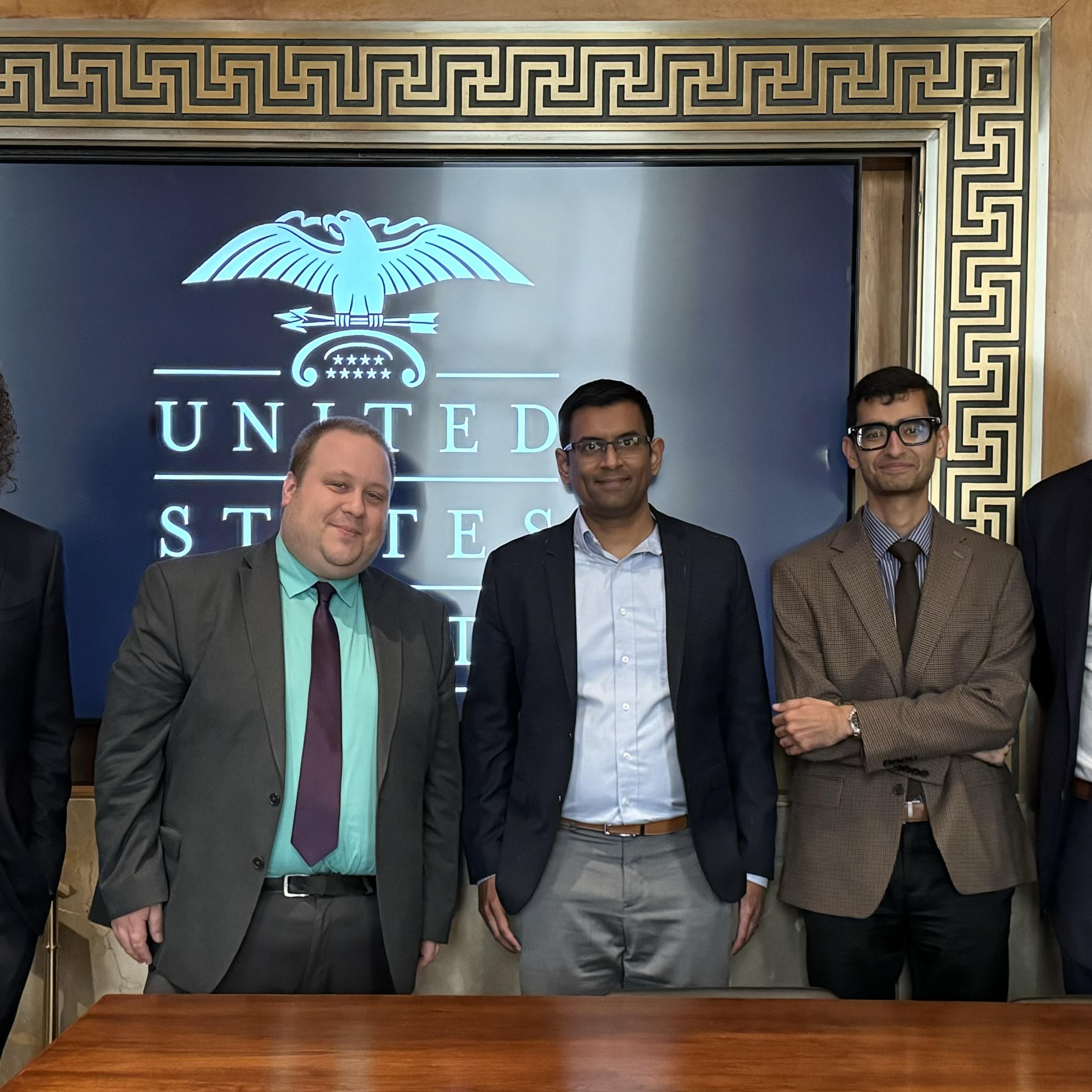

Princeton SPIA Helping to Keep D.C. Policymakers in the Know on Artificial Intelligence
With Princeton University taking a leading role in researching artificial intelligence, the School of Public and International Affairs is playing its part by informing federal policymakers on the latest innovations and shaping new conversations on AI governance.
The School and its Center for Information Technology Policy (CITP) have launched the Princeton AI Dialogues, a multi-faceted initiative on artificial intelligence that explores the hard policy questions around the development, application, and governance of these extraordinarily powerful technologies. Based at the School’s SPIA in DC Center in Washington, the project is focused on supporting U.S. policymaking through a range of public and private activities relating to AI policy and governance, from congressional briefings to private expert dialogues to public-facing events.
“The need for expertise in federal AI policy making is urgent,” said CITP Director Arvind Narayanan, a professor of computer science. “Princeton is perfectly poised to make a difference because of the technical depth and disciplinary breadth of our AI expertise, CITP's decades of experience, and the convening power of SPIA in DC.”
This past spring, SPIA in DC and the CITP faculty convened the first “AI Policy Precepts,” a non-partisan program designed to explore the core concepts, opportunities, and risks underlying the technology that seems likely to influence federal policymaking for at least the next 10 years. Modeled after the Princeton Precept, a teaching method whose distinguishing feature is that it is student-centered, rather than teacher-centered, the inaugural Precepts drew emerging AI leaders from across the federal government, from Health and Human Services and the Government Accountability Office to the Departments of Defense, Commerce, Justice, and Homeland Security. Each deep dive began with expert insights on predictive and generative AI before moving to an open dialogue on core ideas, challenges, and policy solutions.
The goal of the Precepts is for participating policymakers to come away with frameworks that will help them frame and guide emerging decisions on AI applications, as well as the opportunity to establish relationships with a cohort of policymakers grappling with these challenges.
This past spring, CITP and SPIA in DC co-convened bi-partisan briefings on Capitol Hill, including for expert staff from the Senate AI Caucus and to its House of Representatives counterpart. Moderated by SPIA in DC Director Zach Vertin, the expert briefings featured Narayanan, a member of the Time100/AI list; Peter Henderson, an assistant professor of computer science and the School of Public and International Affairs; and computer science Ph.D. candidate Sayash Kapoor addressing dozens of policymakers from Republican and Democratic congressional offices and committees.
The briefings addressed a wide range of AI-related topics, including open versus closed models, safety and catastrophic risk management, testing/validation/red-teaming, cybersecurity, copyright, deepfakes, watermarking and provenance, potential impacts on labor, hiring, judicial processes, and children.
“We’re excited about this initiative and the platforms we are building for our faculty experts — who include some the country’s leading AI thinkers — to shape emerging policy on both AI innovation and governance,” said Vertin. “It’s no secret that these technologies are already shaping every aspect of federal policy making, and the Dialogues are designed to help navigate complex decisions in each domain — from healthcare to national security to labor markets.”
Another series of AI Policy Precepts is in the works, as are further congressional briefings and other AI programming, including direct engagement with policymakers across the legislative and executive branches.
“The events so far are just the beginning, and I look forward to continued engagement and impact,” Narayanan said.


